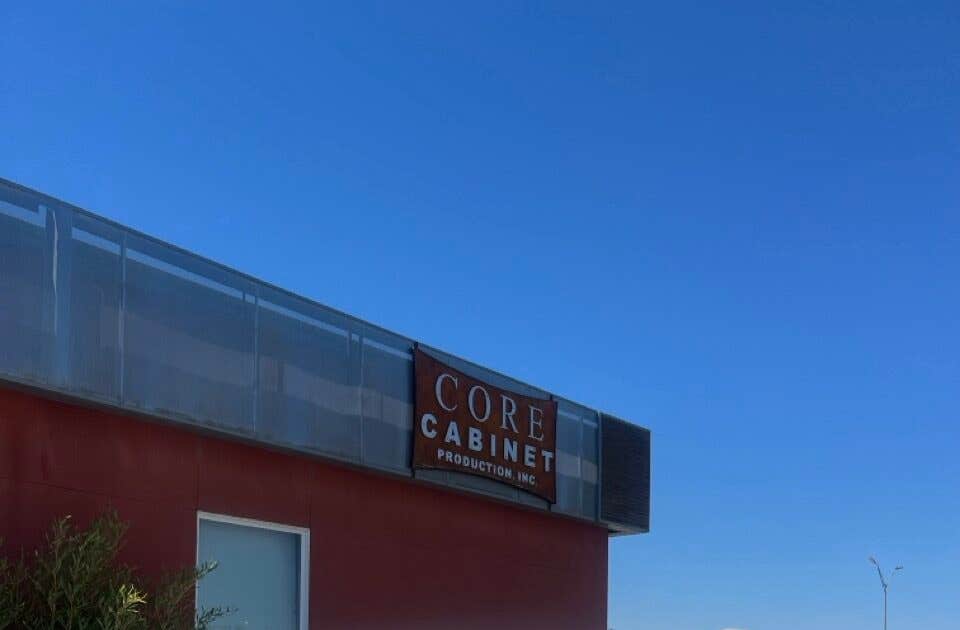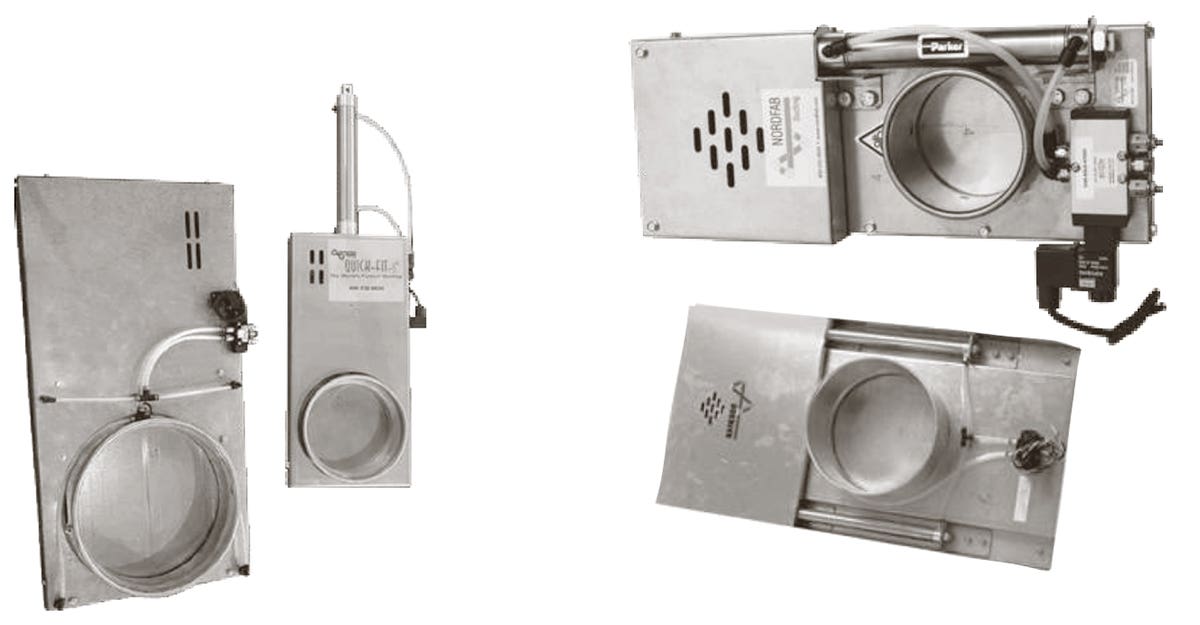Through the roof
For many small woodshops, insurance costs as much as the rent — and sometimes more. There is such a thing as being overinsured, but the worst effect of that is…
For many small woodshops, insurance costs as much as the rent — and sometimes more. There is such a thing as being overinsured, but the worst effect of that is just a higher premium. Being underinsured, on the other hand, can be absolutely disastrous.
There are two ways to be underinsured. The numbers can be too small or the insurance can be the wrong kind.
If your building is worth $500,000 and your coverage is $350,000, the numbers are too small. That’s an easy fix. Simply make a list of your assets (machines, trucks, inventory, building and so on), and get estimates as to their value. The Internet is a great way to research the machinery and auction houses will often give you an informal estimate, too. When it comes to real estate, you could order an appraisal on the premises and pay several thousand dollars for it, but a licensed realtor can give you a pretty good ballpark figure. Just be up front and let them know you’re asking for a favor. Some realtors will give a “broker’s opinion of value” for a few hundred dollars and your insurance agent will be more comfortable with that than an informal guess.
When you have reasonable estimates of the values of everything, just sit down with your agent and they will tell you how much adjusting the policy levels will cost in terms of monthly or annual premiums.
Your deductible will make a huge difference in the cost of a policy. The more risk you are willing to accept (that is, the higher your deductible), the less you will have to pay for insurance.
The second way to be underinsured is having the wrong kinds of policies. The property insurance is an easy one: if you own the building, you need fire, theft and liability coverage. If you’re renting, you need renter’s insurance that covers the contents (yours), and whatever your lease says is your responsibility when it comes to the building. If you’re unsure whether you are required to keep a policy in force or how much it needs to be, bring the lease to your insurance agent and let them have a look at the language. If they can’t clarify things, you’ll need to check with a lawyer.
Liability and workers’ comp
If you don’t have a written lease that spells out your liability, put down this magazine, call your landlord and get one signed before nightfall. Without a lease, things can get very murky. In the event of a fire, you just might spend the next 30 years paying for a building that no longer exists and that you never owned anyway. If somebody is hurt on the premises, that can be a lot more expensive than a burned building. And if the fire spreads into neighboring buildings, you need to know whether you or the landlord is supposed to carry that coverage, too.
Keep in mind that virtually everything is negotiable in a lease. Just because you don’t own the building, don’t assume that the landlord has the insurance needs covered or that his policy releases you from any liability.
Most landlords who lease out commercial space will ask you for a certificate of insurance and, if they’ve been around for a while, they’ll even ask that you list them as an additional insured on your policy.
In general, the burden for the building rests with the landlord and the burden for the contents rests with the tenant. However, there is no law that requires this arrangement: some leases transfer a lot of the responsibility to the tenant, so be aware of what you are signing.
If you hire people, you are required to carry workers’ compensation insurance. Your state government will have an office that deals only with this issue and they will not only let you know exactly what you need to do, but they can usually provide a list of companies that offer this coverage in your state (check with the Department of Labor). Some states even provide this insurance through mandatory funding — that is, the state is one of the “companies” that offers policies.
Your company, partnership or sole proprietorship will probably need to discuss an umbrella policy with your insurance agent. This is an overall policy that picks up the slack if a primary policy exceeds its limits. For example, if you install a kitchen and one of the cabinets falls off the wall and causes a life-changing injury to somebody in the customer’s family (and a judge rules that it was your fault), your liability policy might not be able to cover a lifetime of therapy, medical treatment and live-in help for the injured person. Depending on how it is written, an umbrella policy might be able to provide enough funds for your lawyer to negotiate a single payment settlement. Every case is different, so check first with your insurance agent to see if an umbrella policy is appropriate and it doesn’t hurt to have your lawyer look over the policy, too, before you sign it.
Full coverage
Your business insurance comes in two flavors. Beyond real estate, property policies might cover the furniture, fixtures, computers, software programs and often the inventory (ask if yours does), while liability policies protect you from claims that others make against the business. For example, a customer who slips on the sidewalk in front of the building could have a claim against you if you are responsible for maintaining the sidewalk. An employee who is hurt on a table saw will usually have his medical bills covered by workers’ comp, but they might also sue the company for ancillary costs or burdens not covered or in excess of the limits of the workers’ comp policy. A visiting drawer slide salesman who tours the shop and sits on a spinning router bit could have a claim against the company. That would not be covered by your workers’ comp, because he isn’t an employee, but it could be covered by the drawer slide company’s policy. Ask your agent if and how a comprehensive general liability policy can protect you here.
Other insurance details to discuss with your agent include loss of income (if you are the only employee and you have an accident that closes the shop for a month, how will you pay the mortgage?). Flood insurance is very subjective: you could be required to have a flood plain analysis completed to see if the shop is located in a federally recognized flood zone: if so, be prepared to spend a couple of days figuring out how you can get covered. This area has become very complicated in recent years.
Are you covered for hurricanes and/or tornadoes? Ask your agent.
Publishers have policies that cover errors and omissions and, if you hire an advertising agency, they will probably have a version of this in place. However, their policy will be tailored to protect them, not you, and if your ad somehow leads to an injury, you need to know that you’re covered. For example, if you give driving directions to the shop that unintentionally send people the wrong way on a one-way street, you could be open to a lawsuit. Our industry has some vulnerability when it comes to fingers caught in doors or drawers or drawers sliding out without stops or cabinet doors with standard glass instead of safety glass. Ask your agent about product policies and completed operations insurance (remember that cabinet that fell off the wall earlier?).
You also need to know if you are responsible for the flooring contractor that you hired as a sub to install countertops and floor tiles. You know: the one who left that 1/4” lip on the threshold that is just waiting to trip the cook as she walks through with a tray of glasses.
Your insurance company might be able to provide checklists and other tools that help you to reduce your woodshop’s vulnerability (called “risk management” in the insurance world). For example, they might have guidelines regarding the use of extension cords, clear pathways, dust control, venting and other issues that can dramatically reduce risk, and make you more insurable.
If you have company vehicles, make sure that your drivers meet the policy rules. For example, your policy could say that an employee with a drunk-driving conviction can’t operate company vehicles and, if he does, the policy is void.
Ask your agent about life insurance for you and for your employees. If it’s part of a package, the rates might be more favorable.
The biggest policy your company will ever write is health insurance for employees. This area is at best murky now and will probably become even more mired as we sort through Obamacare. While the politicians fight over it, small businesses are going to have a hard time learning exactly what is required of them as it works its way into our lives. We handled Social Security and Medicare and we’ll handle this, too, but it’ll be a bumpy ride until we nail down the rules.
This article originally appeared in the November 2013 issue.







